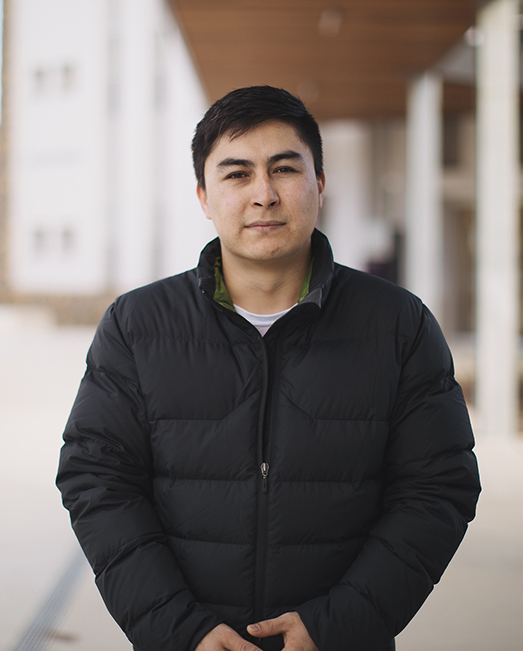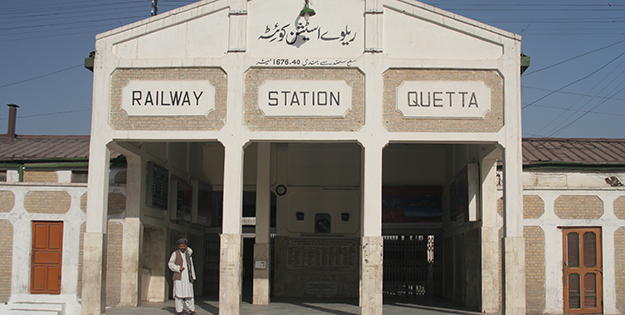Global
Copyright@ Australian Catholic University 1998-2026 | ABN 15 050 192 660 CRICOS registered provider: 00004G | PRV12008
Copyright@ Australian Catholic University 1998-2026 | ABN 15 050 192 660 CRICOS registered provider: 00004G | PRV12008

Quetta, Pakistan, August 2011. Shi’a Muslims pray at the early morning ceremony marking the end of Ramadan, the Islamic holy month of fasting. After prayer, they plan to go home and celebrate the start of Eid with food, music and dancing.
Tahir Ahmadi is among the worshippers.
“Prayer has finished and we’re trying to get out of the door and go and celebrate the rest of the day, and I’m behind the door when there’s this big, loud explosion,” he says.
“I fall down and then everyone’s pushing so they can get away. The explosion affects my ears, so I can’t hear a thing, and eventually I go outside and I see these people, half people — only hands, only legs, only heads — pieces of human body all around me, and I see a guy who’s been blown in half and he’s still alive.”
Tahir, only 14 years old at the time, is in deep shock. “We try picking him up, but as a kid, of course you don’t know what you’re doing,” he says. “It was the most traumatic experience of my life and I felt so helpless.”
The suicide bombing kills 11 people, including a seven-year-old boy and two women, in an area of Quetta mostly populated by the Shi’a Hazara minority.
“After that I thought, ‘I really should do something to help people, if I get the chance’,” Tahir says. “It definitely drove me to finish my nursing degree and, hopefully, to one day study medicine, so I can help more people.”

In November 2018, seven years on from that harrowing event, Tahir secures his first job as a nurse at Calvary John James Hospital, having completed his placement there during his nursing degree at ACU’s Canberra Campus.
“Being a nurse, I can help people who are not able to help themselves,” says Tahir, now 22.
“That gives me satisfaction and an opportunity to give back to the community. It gives me a sense of identity and a sense that I am the person I always wanted to be.”
Tahir Ahmadi is one of the 50,000 Hazaras now living in Australia, many of whom fled persecution from Afghanistan’s hard-line Islamist Taliban movement.
Memories of his childhood in Afghanistan are blurred by the trauma of his father being killed, but he still remembers the strict rules and harsh punishments imposed by the Taliban — like banning women from walking the streets without a blood relative, or threatening to expel students who did not wear turbans.
“The teachers would say, ‘Don't take off your turbans because the Taliban can come at any time’, so we were always fearful and worried,” Tahir says.
“I have one memory that’s never far from my mind. We were outside of our houses and the Taliban came past in their cars, with their long, thick moustaches and beards, holding their guns, and everyone was freaking out. I will never forget that feeling of fear.”
He fled across the border to Pakistan in 2006, when the Taliban’s suicide bombings and roadside attacks had become more frequent and more deadly.
But even in Pakistan, there were stresses and dangers.
The Shi’a Hazara minority is commonly the target of killings and persecution in and around Quetta. The threat of violence is ever present, as can be seen by the bomb blast that Tahir survived in 2011, and in subsequent attacks targeting Hazaras.
On top of those dangers, Tahir couldn’t work or go to school. “It was a hopeless situation,” he says, so he fled in search of “a place where I could live a normal life and not be discriminated against for being a Hazara.”
Suddenly, Tahir Ahmadi found himself on a perilous, lonely path.
It was almost a year after leaving Pakistan that he finally arrived in Australia in 2012. At the culmination of a tumultuous journey, one in which he risked his life over land and sea in search of new beginnings, Tahir found himself in Merrylands, a suburb of western Sydney, experiencing culture shock and, finally, a feeling of safety.
“Being able to go outside, without fences around you, knowing that nobody will harm you, it was kind of like I found a pair of wings and I could fly, that’s honestly how I felt,” he says.
“But I was 16, I was very naïve, in a country very different from my own and all the others I had been to, and I knew things were going to be tough.”
In 2014, while still on a bridging visa, he was enrolled in Year 11 at Holroyd High, a public school in Greystanes that’s become known as “the school of hope for refugee students”.
He studied hard. His English was improving all the time, as was his knowledge of Australia’s culture and way of life.
Meanwhile, his dream of working in healthcare seemed a tad closer to attainable, but without a long-term visa, he still had little hope of attending university.
Through a friend, he was introduced to Professor Anne Cummins, then the Deputy Vice-Chancellor (Students, Learning and Teaching) at ACU. “I had to go to her office to discuss the possibility of getting accepted for a scholarship, and it went really well but I was still unsure whether it would happen,” Tahir says.
“When I got the news I would be accepted, I couldn't actually believe it was happening, it was like a dream. Honestly, I felt like I was dreaming.”
He got some more good news in late 2016, at the end of his first year of study at ACU’s Canberra Campus, when he was granted a Safe Haven Enterprise Visa permitting him to live and work in the ACT.
“I feel like I am one of the lucky ones to have the opportunity to live and study here and improve my life,” he says.
Tahir’s nursing job at Canberra’s Calvary John James Hospital gives him “satisfaction and peace of mind”.
“When I go home at the end of the day and I'm tired, that tiredness is so satisfying, because I feel like I've done something to make a difference, that I’ve done something to help someone and give back to the community that has given me so much,” Tahir says. “It gives me purpose and a sense of belonging.”
He has big plans ahead. Tahir is currently studying in preparation for the Graduate Australian Medical School Admissions Test, with a long-term goal of becoming a doctor.

While he still finds it hard to be so far away from his loved ones, he seems happy to leave the hardship and trauma of Afghanistan behind.
“When I see the news and I see that people are still suffering there, it makes me upset, but to be honest Afghanistan doesn't enter my head that often because I'm focused on my life here and on achieving my goal of helping people,” Tahir says, adding that he now feels “more Australian than anything else”.
“Australia is my home now, and I really hope it always will be.”
Keen to study nursing at ACU? Explore the options.
Editor update: We regret to inform you, sadly Tahir passed away in an accident in 2023. A tragic loss.
Copyright@ Australian Catholic University 1998-2026 | ABN 15 050 192 660 CRICOS registered provider: 00004G | PRV12008